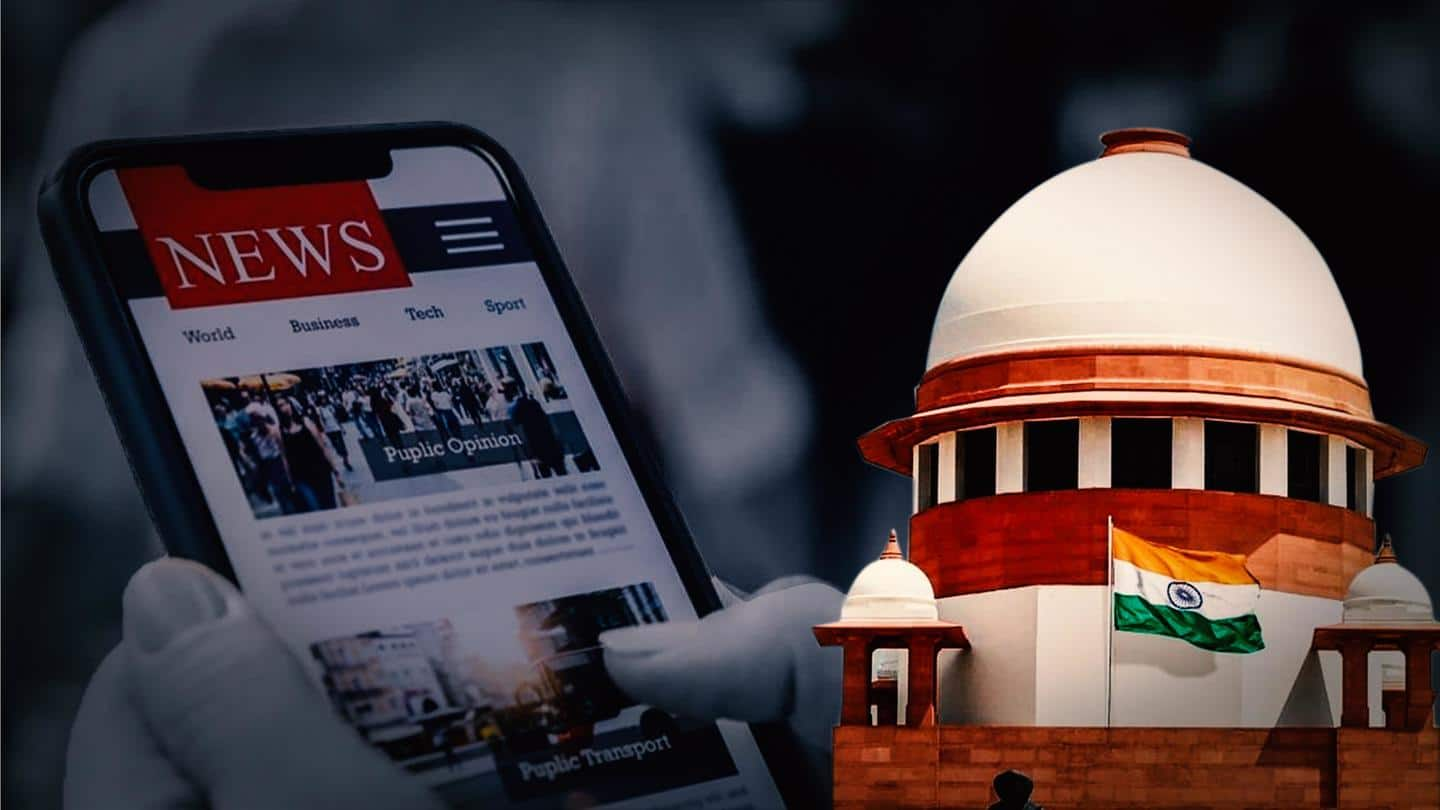
Communalizing news gives bad name to country, says Supreme Court
What's the story
The Supreme Court on Thursday slammed web portals for their attempts to give a communal color to news, saying these portals lack accountability.
The SC expressed concern over fake news being peddled by social media portals.
The court was hearing a batch of petitions, including one filed by Jamiat Ulema-i-Hind, seeking action against the media for blaming the Tablighi Jamaat for the COVID-19 outbreak.
SC
'Communalizing of news a problem, brings bad name to country'
Expressing concern over fake news, the SC asked if there is any law to govern these social media platforms.
"There is an attempt to give communal color to the news and that is the problem. It ultimately brings a bad name to the country."
Meanwhile, the SC allowed the petitioners to amend pleas seeking action against the media for communalizing the Tablighi Jamaat issue.
Social Media
What did the SC say on social media?
The SC said that social media companies only listen to powerful people and not institutions or common people.
"Twitter, Facebook or YouTube...they never respond to us and there is no accountability. About the institutions, they have written badly and they don't respond and say this is their right. They only worry about powerful men and not judges, institutions, or common man."
Centre
SC lists Centre's transfer plea of cases challenging IT Rules
Responding to the court's observations, Solicitor General Tushar Mehta said the new IT rules intend to address these issues highlighted by the SC.
The SC also agreed to Mehta's request to list the Centre's plea, seeking all cases challenging the IT Rules in different High Courts transferred to the Supreme Court, along with the present petitions.
The matter will be heard after six weeks.
Information
Kerala HC protected us from coercive actions: Broadcasters' association
Meanwhile, News Broadcasters Association, a respondent in the case, told the SC that the Kerala HC has granted them interim protection from coercive action under the new IT Rules in a challenge made by them.
Background
What was Tablighi Jamaat incident?
In March 2020, Tablighi Jamaat had organized an event in Delhi's Nizamuddin Markaz which was attended by hundreds of foreigners and thousands of Indians.
When several attendees tested positive for COVID-19, some media organizations blamed the event for the spread of the virus with communal rhetoric.
Following this, Jamiat Ulema-e-Hind moved the Supreme Court for communalization and blaming the event for the COVID-19 spread.